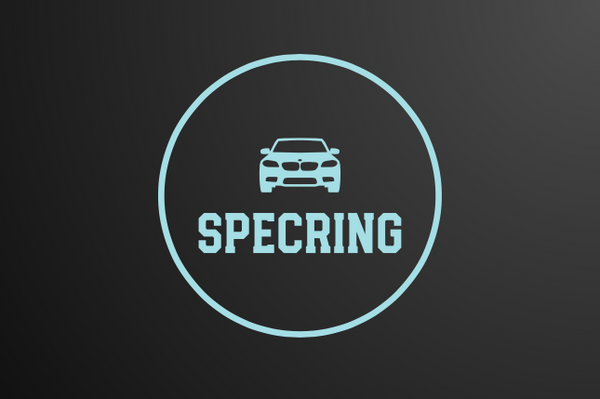When it comes to upgrading your BMW for peak performance, the materials you choose matter. Among the most debated options are carbon fiber and aluminum. Both materials offer unique advantages, but which one truly reigns supreme for performance parts? In this guide, we’ll break down their differences in weight, strength, durability, cost, and performance impact to help you make an informed decision.
Why Material Choice Matters in BMW Upgrades
BMW enthusiasts seek both performance and aesthetics when modifying their cars. The right material can improve aerodynamics, weight reduction, and overall driving dynamics.
At Spec-Ring, we specialize in high-quality BMW carbon fiber performance parts, including front lip spoilers, rear diffusers, mirror caps, and side skirts. Let’s compare carbon fiber and aluminum to determine which material is the best choice for your upgrades.
1. Weight & Performance
Carbon Fiber: The Lightweight Champion
- Carbon fiber is nearly five times lighter than steel and significantly lighter than aluminum.
- Reducing weight improves acceleration, handling, and fuel efficiency.
- Used in BMW M Performance Parts to enhance speed and agility.
Aluminum: Light but Not the Lightest
- Heavier than carbon fiber but still lighter than steel.
- Often used in OEM parts due to affordability and manufacturing ease.
- Offers good weight savings but doesn’t compare to carbon fiber for high-performance needs.
✅ Winner: Carbon Fiber – The reduced weight results in better power-to-weight ratio and enhanced handling.
2. Strength & Durability
Carbon Fiber: High Strength, but Brittle
- Stronger than aluminum when applied in the right weave.
- Resistant to corrosion and rust.
- Downside: Carbon fiber is more brittle, meaning it can crack upon extreme impact.
Aluminum: Malleable and Impact-Resistant
- More ductile than carbon fiber, making it more resistant to dents and deformation.
- Ideal for structural components like control arms and chassis reinforcement.
- Downside: Prone to oxidation and corrosion over time.
✅ Winner: It depends – Carbon fiber wins for strength-to-weight ratio, while aluminum is better for impact resistance.
3. Aesthetics & Styling
Carbon Fiber: A Motorsport Look
- Iconic woven pattern looks aggressive and stylish.
- Commonly used for BMW M3, M4, and M5 performance enhancements.
- Clear-coated for UV protection and longevity.
Aluminum: Functional but Less Aggressive
- Generally painted or anodized, offering a clean but less visually striking appearance.
- More functional for hidden components like engine bay reinforcements.
✅ Winner: Carbon Fiber – It provides a premium motorsport-inspired aesthetic.
4. Cost Comparison
Carbon Fiber: Premium Pricing
- Manufacturing is complex and labor-intensive.
- Costs more due to advanced autoclave curing and precision molding.
- Prices vary depending on the weave and finishing quality.
Aluminum: Cost-Effective Alternative
- Easier to mass-produce, making it more affordable.
- Widely used in factory BMW parts due to lower production costs.
✅ Winner: Aluminum – If budget is a concern, aluminum offers a more affordable solution.
5. Best Applications for Each Material
| Component | Carbon Fiber | Aluminum |
|---|---|---|
| Front Lip Spoilers | ✅ Lightweight & aerodynamic | ❌ Heavier, less effective |
| Rear Diffusers | ✅ Maximizes airflow & downforce | ❌ Less effective in airflow redirection |
| Side Skirts | ✅ Enhances aerodynamics & aesthetics | ❌ Limited weight savings |
| Mirror Caps | ✅ Adds an aggressive look | ❌ Not commonly used |
| Strut Braces | ❌ Brittle under extreme stress | ✅ Ideal for chassis reinforcement |
| Engine Covers | ✅ Lightweight & heat-resistant | ✅ Cheaper, but heavier |
Final Verdict: Which One Should You Choose?
If you’re looking to maximize performance, weight reduction, and aesthetics, carbon fiber is the ultimate material for exterior and aerodynamic upgrades. For components that require high impact resistance, such as chassis reinforcement and engine components, aluminum remains a solid choice.
At Spec-Ring, we offer a curated selection of high-quality carbon fiber parts for BMW M-Series and other performance models. Upgrade your ride with the best materials for speed, style, and aerodynamics!
Check out our BMW carbon fiber collection today and experience the difference!
Check out Related Articles:
- The Top 10 Carbon Fiber Parts That Add Instant Value to Your BMW
- Comparing V-Style, P-Style, and CS-Style Carbon Fiber Spoilers
- Best Lightweight Carbon Fiber Mods for Performance Gains
- Enhancing the Rear-End of a G20 with the M Performance Style Carbon Rear Diffuser
- Install Tesla Model 3 Side Skirts Easily

